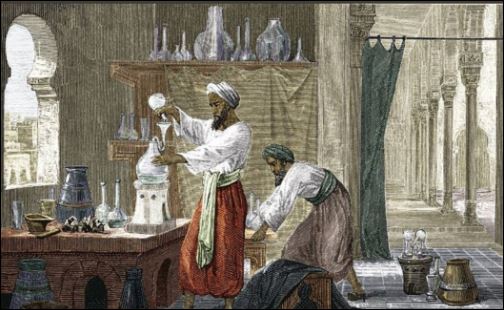If there are people who can be called under-rated for their great achievements towards modern science, then Muslim scientists will also be included in the list. In today’s modern science, these pioneers have their major chunk.
Here is a list of 10 scientists along with their achievements. The history of these Muslim inventors can change your way of thinking about Islam and science.
1. Abu Bakr Muhammad ibn Zakariya al-Razi (854-925)
He was the first to announce the usage of alcohol for medical purposes, an expert surgeon and the first to use opium for anaesthesia. Al-Razi also anticipated therapies first on animals in order to assess their effects and side effects.
2. Omar Khayyam (1048-1131)
He was a Persian mathematician, astronomer, as well as a poet. His most notable work is on the classification and solution of cubic equations. His calendar as an astronomer was more accurate than that proposed five centuries later by Pope Gregory XIII.
His surviving mathematical works include a commentary on the difficulties concerning the postulates of Euclid’s Elements.
3. Al Hasan Ibn Al Haytham (965-1040)
His Book of Optics (Kitab al-Manazir) and its Latin translation influenced the European scholars in the 17th century. He invented the first camera and wrote about the concept of gravity 700 years before Isaac Newton’s discovery and apple theory.
4. Muhammad ibn Musa al-Khwarizmi (780-850)
He is known as the father of Algebra and Algorithm, that were developed by others. The word algorithm is derived from his name. His book (ḥisāb al-Jabr wal-Muqābala) ( The calculation of Integration and Equation) was used until the 16th century as the principal textbook of European universities. He invented the concept of zero or (sifar), that created a revolution in mathematics.
5. Abu Ali Ibn Sina (980-1037)
He is better recognized to the west as Avicenna. He wrote 246 books by himself, kitab al shifa (the book of healing) contains 20 volumes. He was the first scientist to describe meningitis and to prepare ironic contributions to anatomy, gynaecology and child health. He also discovered the relation between the psychology and health.
6. Abu Musa Jabir ibn Hayyan (721-815)
Also known as the father of early chemistry, he was a polymath, astronomer and astrologer, engineer, geographer, philosopher, physicist, pharmacist and physician. He developed procedures to develop steel and also introduced methods to remove impurities from metals.
7. Abul Qasim al-Zahrawi (936-1013)
He is recognized as Albucasis to the West. He was the first to use silk thread for sewing wounds. He also developed methods to produce artificial teeth and also designed surgical instruments that are still being used in the modern era.
8. Abu Yusuf Yaqub Al-Kindi (801-873)
He was an Arab Muslim philosopher, polymath, mathematician and physician. He wrote books on number systems and modern Mathematics. He also developed scale on quantifying medicine potency.
9. Abu Rayhan al Biruni (973-1048)
He determined the specific density of 18 types of precious stones and defined the ratios between their density. He also established the rule related to the specific density of the body. He was the first to state that speed of light is immense as compared to the speed of sound. He stated Milkyway Galaxy as a collection of stars and invented astronomical instruments.
10. Nasir al-Din al-Tusi (1201-1274)
He was the first astronomer to determine the movement of the planets. He is often considered the creator of trigonometry as a mathematical discipline in its own right. Tusi made very accurate tables of planetary movements as depicted in his book Zij-i ilkhani. This book contains astronomical tables for calculating the positions of planets and the names of stars.

